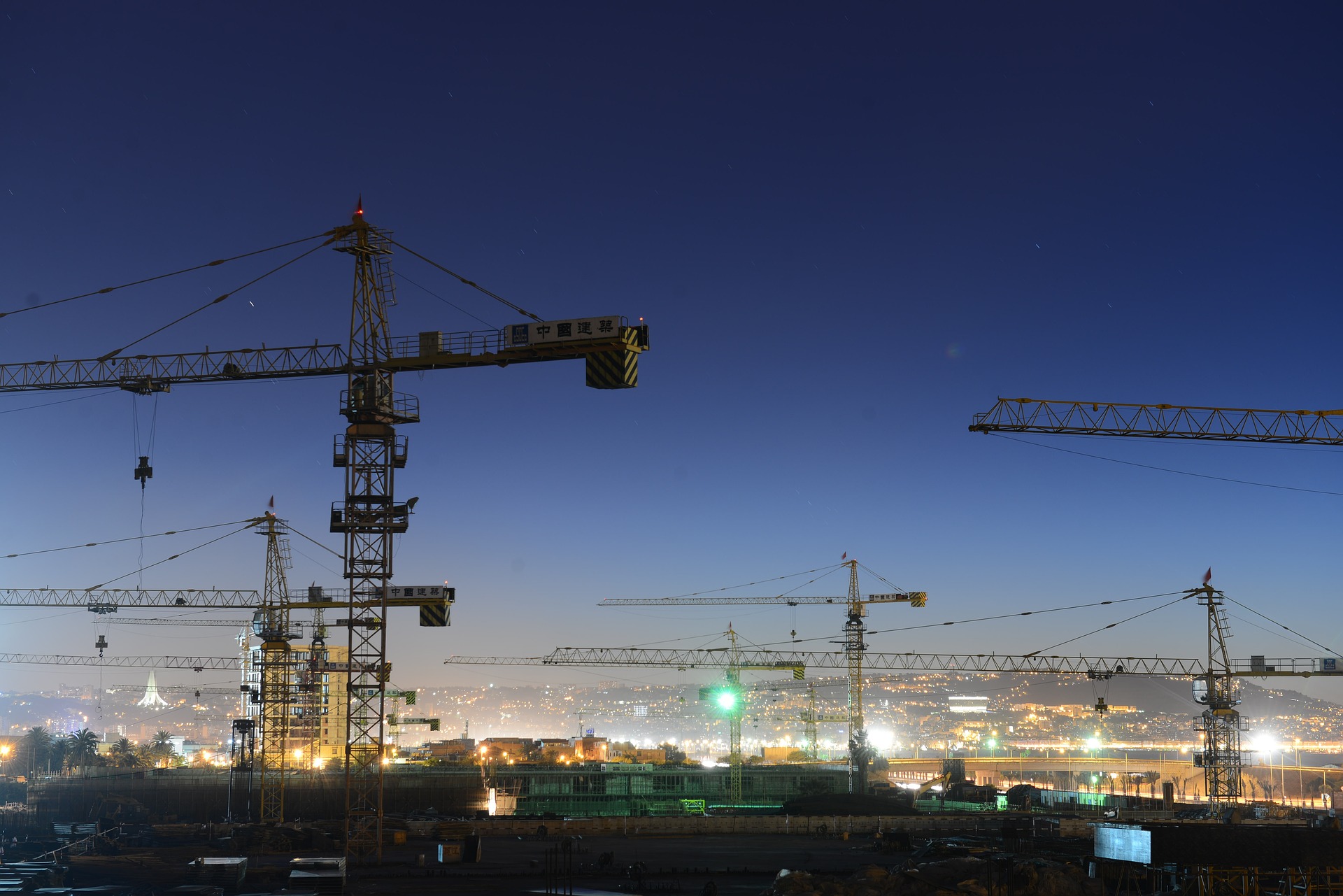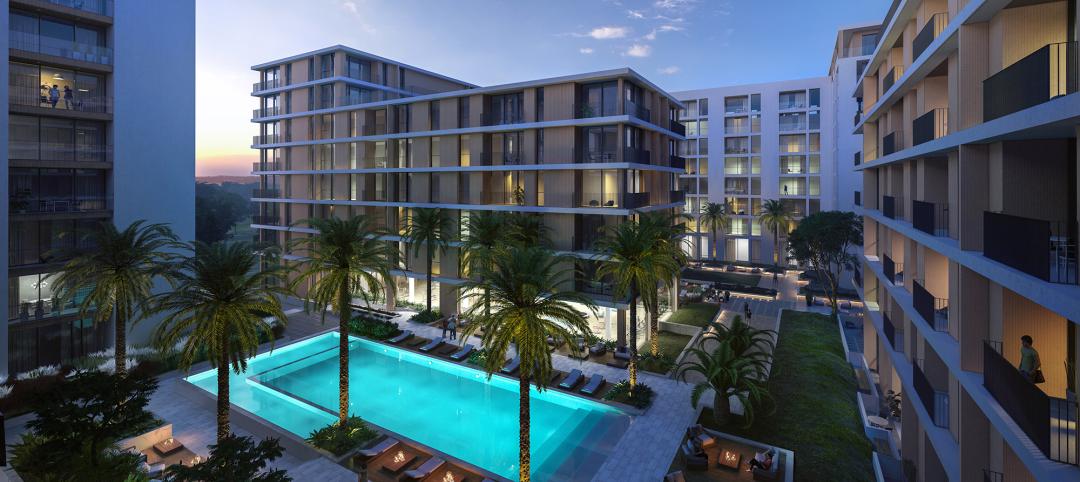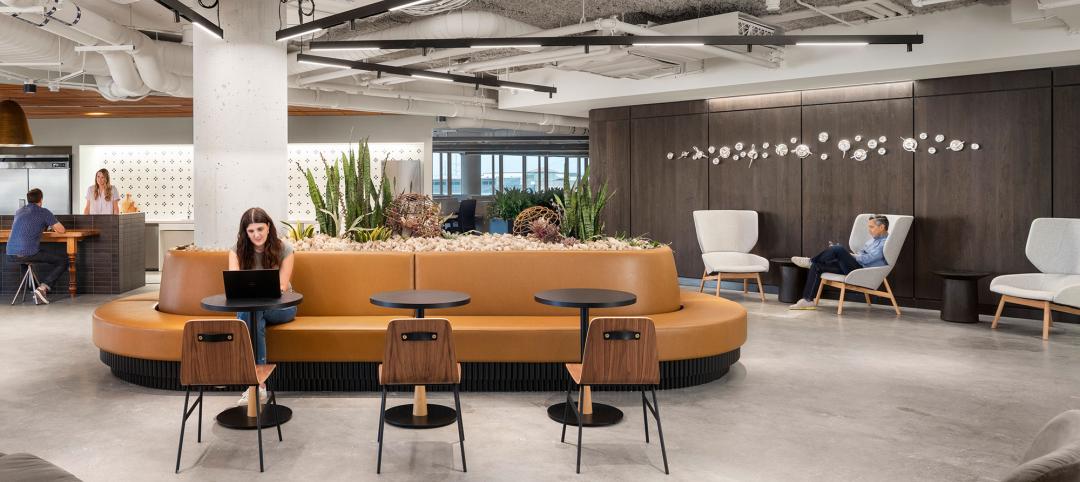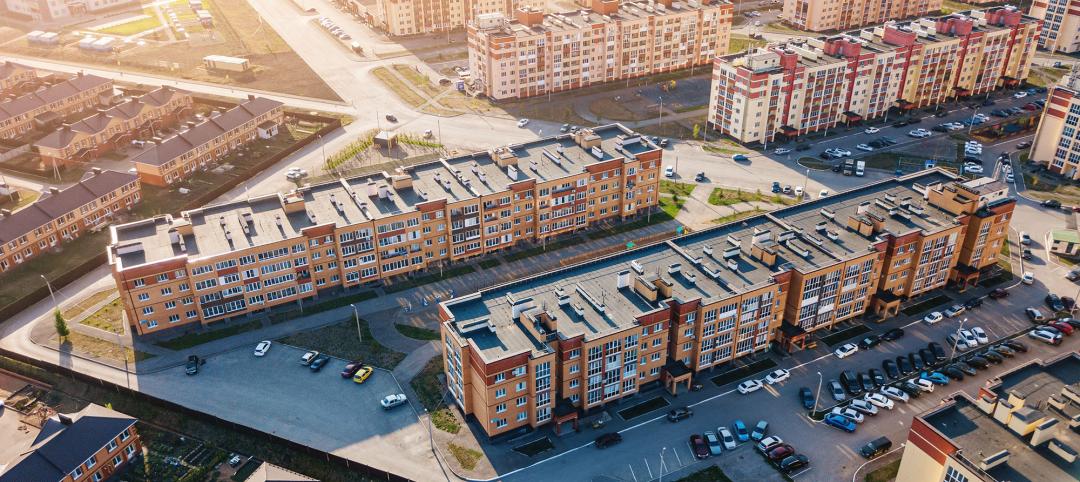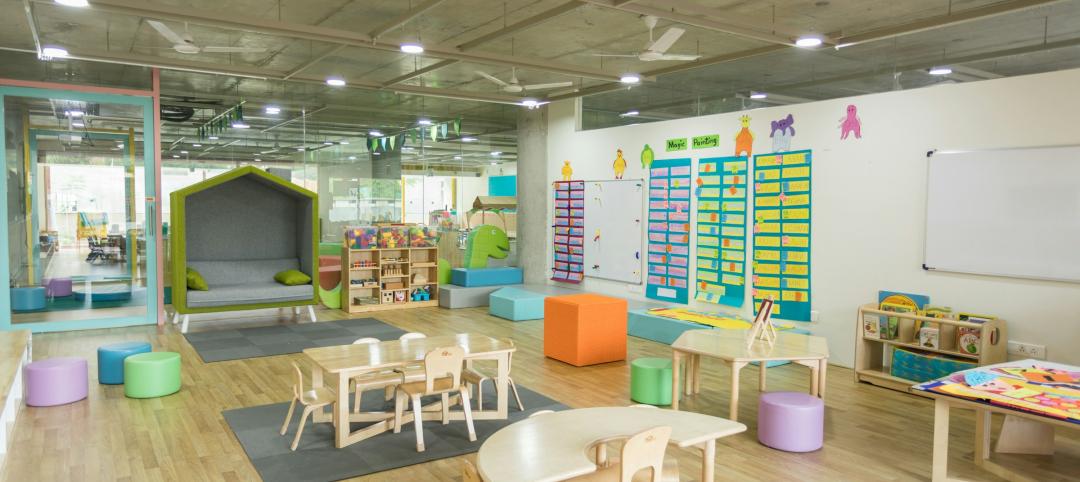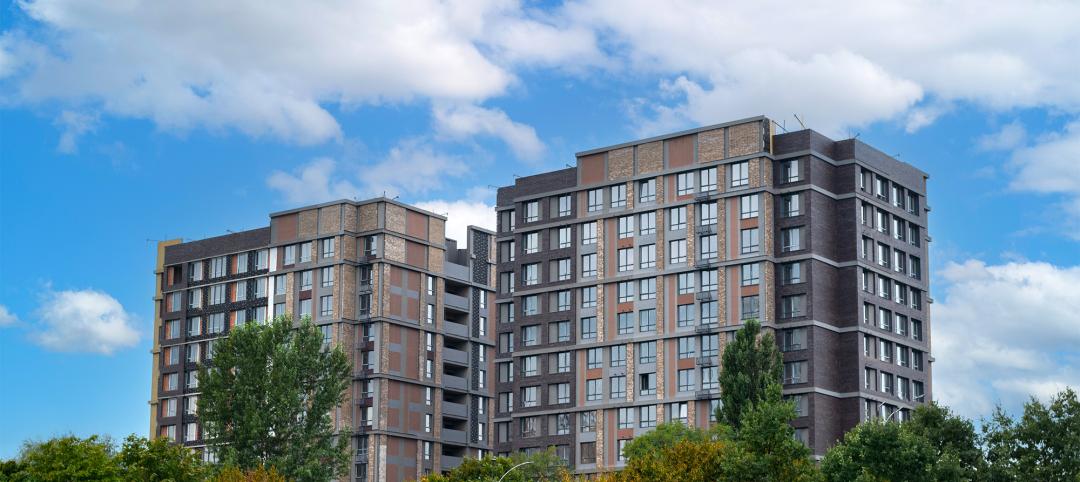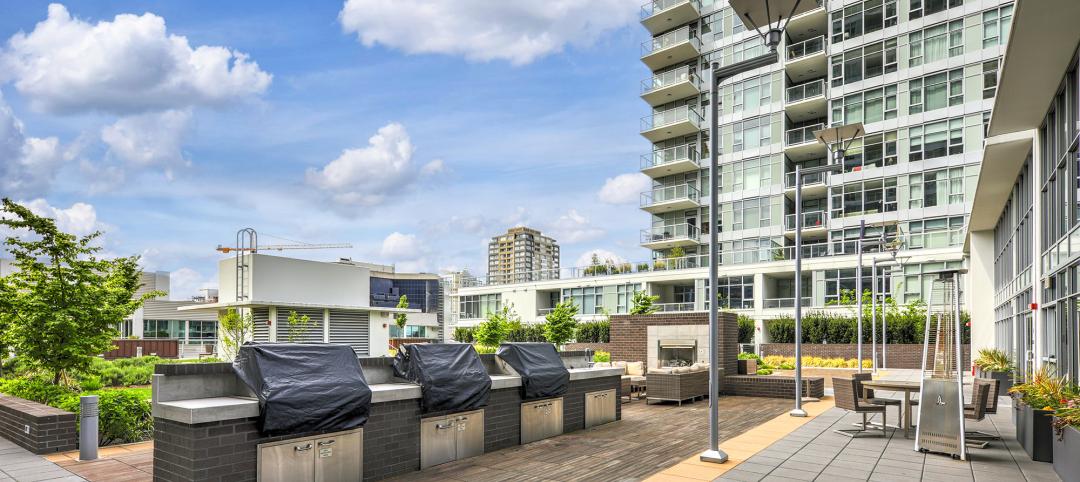National nonresidential construction spending was down 0.1% in February, according to an Associated Builders and Contractors analysis of data published today by the U.S. Census Bureau. On a seasonally adjusted annualized basis, nonresidential spending totaled $844.5 billion for the month.
Spending was down on a monthly basis in 10 of the 16 nonresidential subcategories. Private nonresidential spending was up by 0.2%, while public nonresidential construction spending was down 0.5% in February.
"Nonresidential spending decreased in February despite inflationary pressures that should have driven it higher," said ABC Chief Economist Anirban Basu. "True, nonresidential spending is up 6.2% year over year, but given the significance of construction materials inflation, spending has almost certainly declined in real terms.
"Moreover, the Russia-Ukraine war has spawned further materials price increases, which in turn raises the risk that project owners will decide to postpone or cancel projects,” said Basu. “ABC’s Construction Confidence Index indicates that a growing number of contractors expect to trim their margins during the year ahead in order to induce purchasers to continue to move forward. The spread of an omicron subvariant in China has started to interfere with production there, which translates to additional supply chain disruptions.
"As if that were not enough, the risk of recession is rising," said Basu. "While there is evidence of ongoing momentum, a recent increase in interest rates coupled with hawkish statements from the Federal Reserve imply that credit conditions will become more challenging this year. The question is whether the Federal Reserve can slow economic growth in order to counter inflation without driving the economy into recession.
“The recent inversion of the yield curve is viewed by many economists as a leading indicator of recession,” said Basu. “Since the early 1980s, most rate tightening cycles have ended in recession. For contractors that largely work on private construction projects, this suggests risk of weakening backlog at some point later this year or in 2023. For those largely focused on public work, the economics are more favorable, since federal infrastructure outlays will be elevated for approximately the next five years."
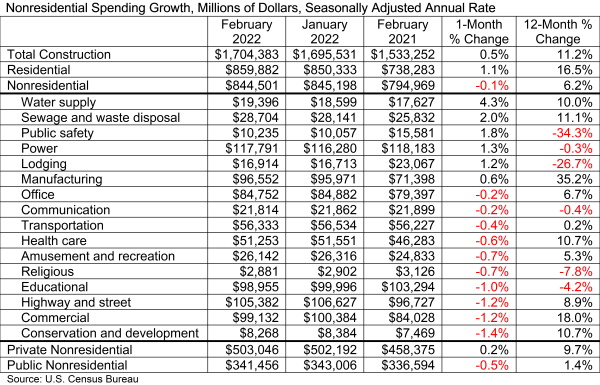
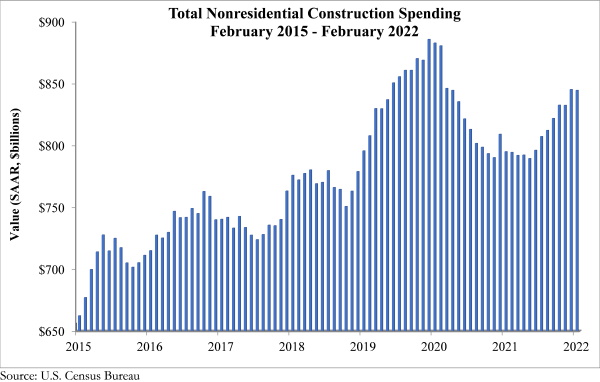
Related Stories
Adaptive Reuse | May 9, 2024
Hotels now account for over one-third of adaptive reuse projects
For the first time ever, hotel to apartment conversion projects have overtaken office-to-residential conversions.
MFPRO+ News | May 8, 2024
Multifamily rent growth approaches peak levels in April 2024
In its latest multifamily report, Yardi Matrix finds that the national average rent has increased for the second month in a row.
MFPRO+ Special Reports | May 6, 2024
Top 10 trends in affordable housing
Among affordable housing developers today, there’s one commonality tying projects together: uncertainty. AEC firms share their latest insights and philosophies on the future of affordable housing in BD+C's 2023 Multifamily Annual Report.
AEC Tech | Apr 30, 2024
Lack of organizational readiness is biggest hurdle to artificial intelligence adoption
Managers of companies in the industrial sector, including construction, have bought the hype of artificial intelligence (AI) as a transformative technology, but their organizations are not ready to realize its promise, according to research from IFS, a global cloud enterprise software company. An IFS survey of 1,700 senior decision-makers found that 84% of executives anticipate massive organizational benefits from AI.
AEC Innovators | Apr 15, 2024
3 ways the most innovative companies work differently
Gensler’s pre-pandemic workplace research reinforced that great workplace design drives creativity and innovation. Using six performance indicators, we're able to view workers’ perceptions of the quality of innovation, creativity, and leadership in an employee’s organization.
MFPRO+ News | Apr 12, 2024
Greystar becomes top apartment owner, manager, and developer in 2024
One firm set records for this year’s National Multifamily Housing Council Top 50 roundup of multifamily firms. Greystar now sits at number one in the NMHC’s lists for top apartment owner, manager, and developer in 2024.
K-12 Schools | Apr 10, 2024
Surprise, surprise: Students excel in modernized K-12 school buildings
Too many of the nation’s school districts are having to make it work with less-than-ideal educational facilities. But at what cost to student performance and staff satisfaction?
Multifamily Housing | Apr 9, 2024
March reports record gains in multifamily rent growth in 20 months
Asking rents for multifamily units increased $8 during the month to $1,721; year-over-year growth grew 30 basis points to 0.9 percent—a normal seasonal growth pattern according to Yardi Matrix.
Retail Centers | Apr 4, 2024
Retail design trends: Consumers are looking for wellness in where they shop
Consumers are making lifestyle choices with wellness in mind, which ignites in them a feeling of purpose and a sense of motivation. That’s the conclusion that the architecture and design firm MG2 draws from a survey of 1,182 U.S. adult consumers the firm conducted last December about retail design and what consumers want in healthier shopping experiences.
Industry Research | Apr 4, 2024
Expenses per multifamily unit reach $8,950 nationally
Overall expenses per multifamily unit rose to $8,950, a 7.1% increase year-over-year (YOY) as of January 2024, according to an examination of more than 20,000 properties analyzed by Yardi Matrix.


